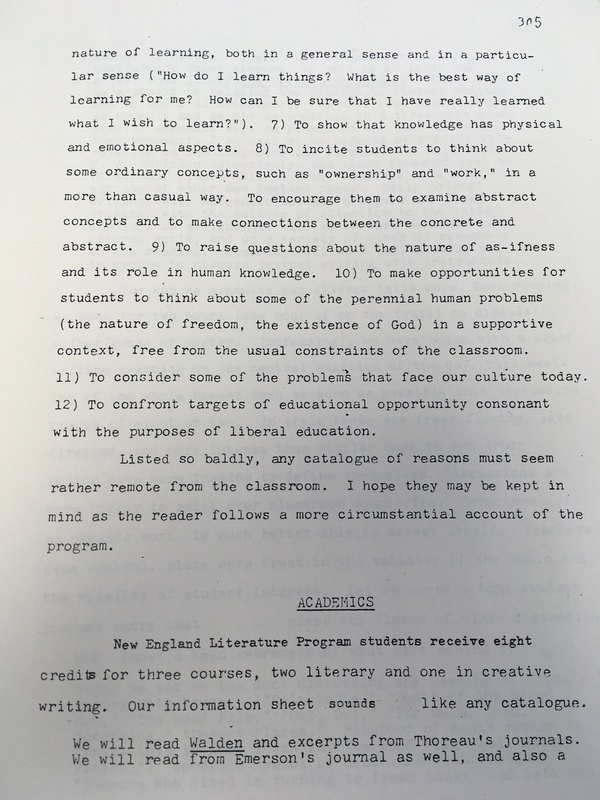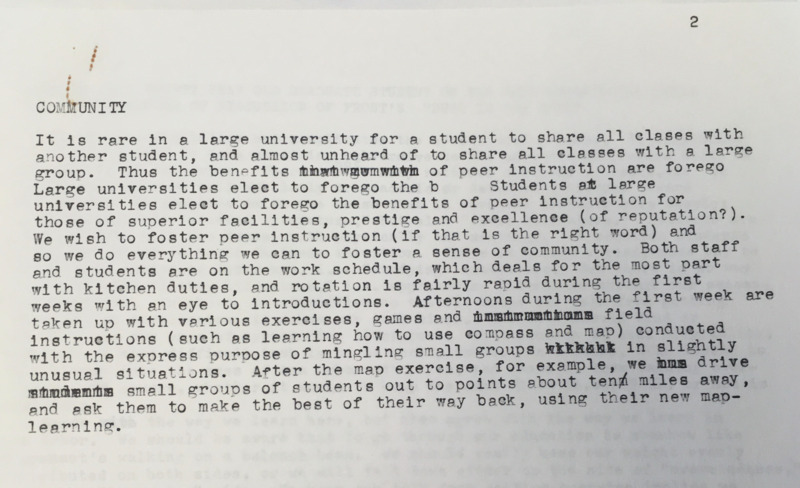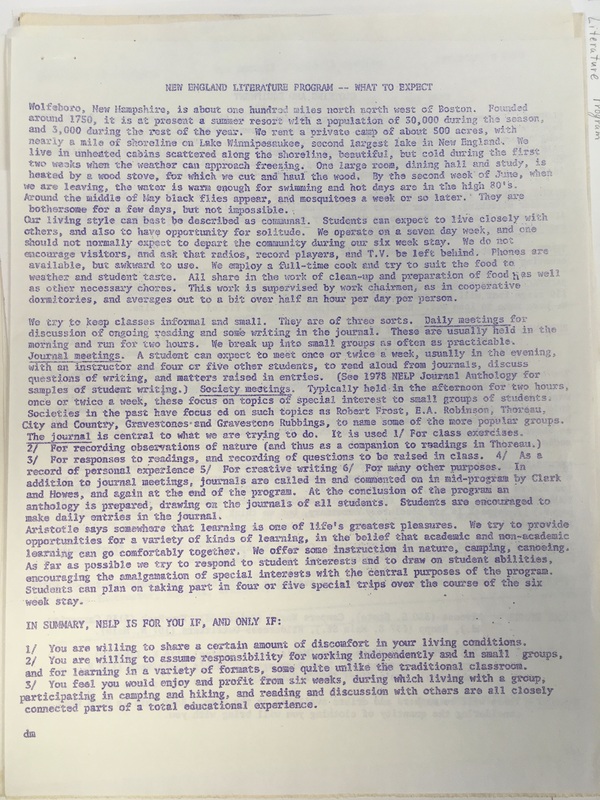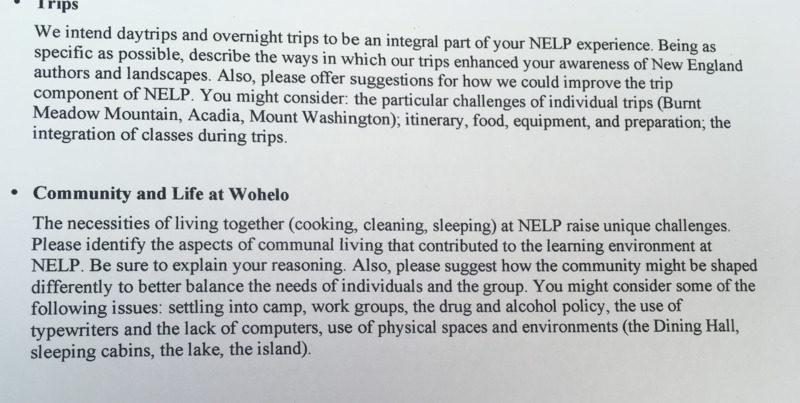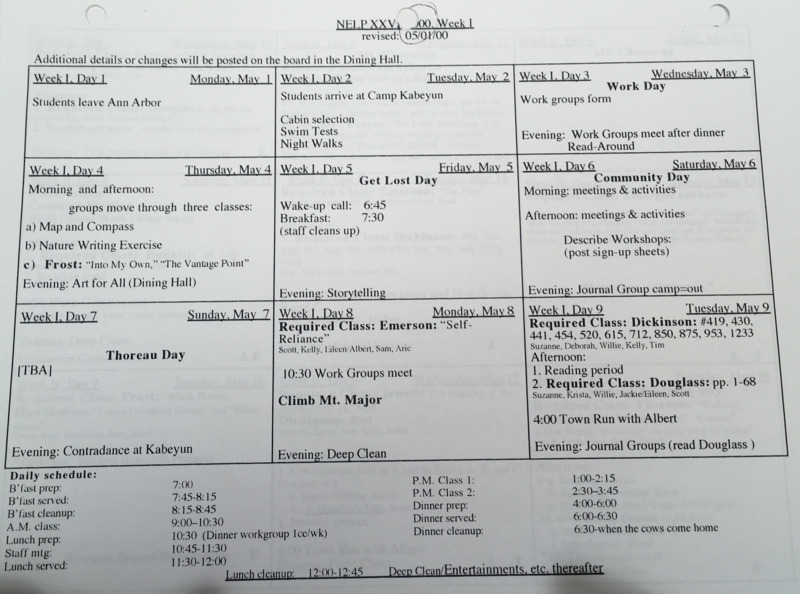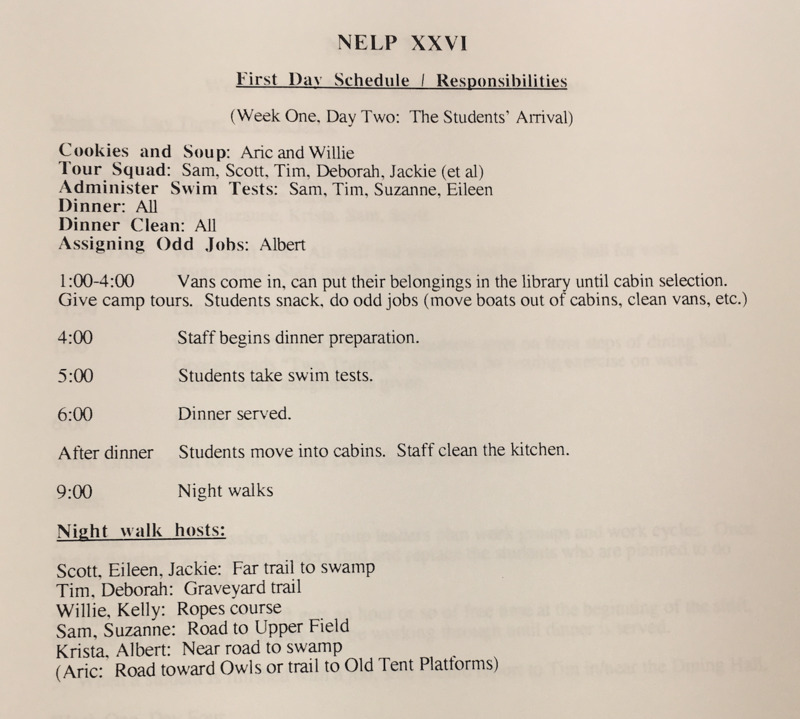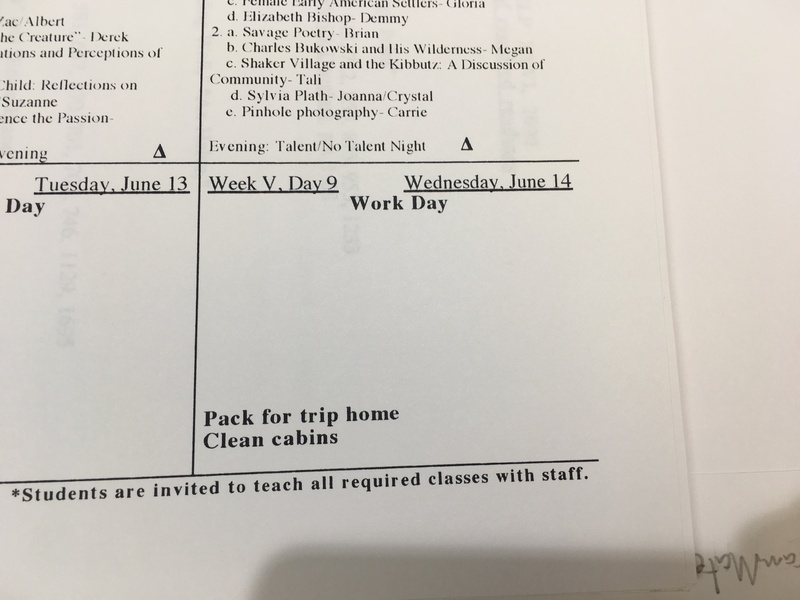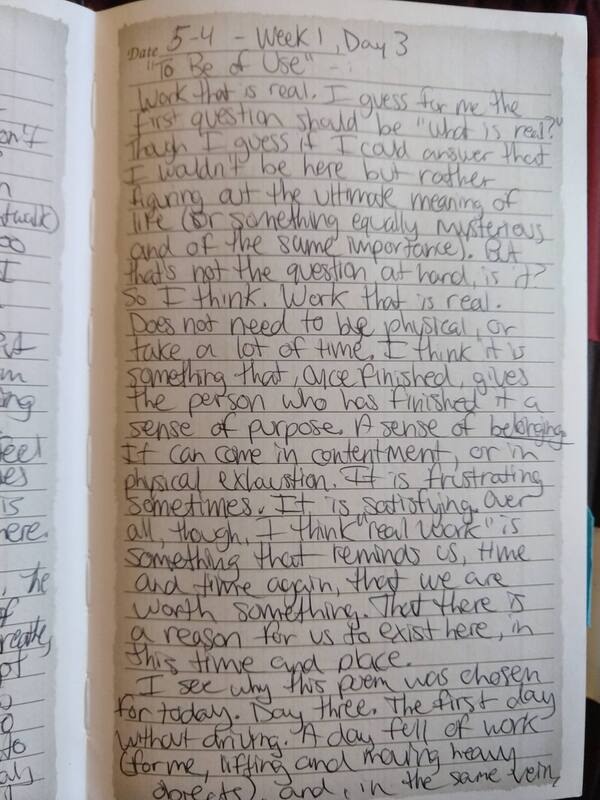Philosophy of work
Historical programmatic and instructional materials from the dawn of the New England Literature Program reveal that the program's structure and function was designed to incorporate and ruminate on communal work, deliberate from the very start. Reverberations of this initial philosophy are evident in ephemera of later NELP sessions throughout the years, including weekly schedules and student journals.
In an early article on the structure and purpose of the New England Liturature Program, founder Walter Clark notes that a chief purpose of the program is to "incite students to think about some ordinary concepts, such as "ownership" and "work," in a more than casual way." (#8).
An excerpt from Walter H. Clark Jr's — founder of the New England Literature Program — descriptive article explaining the structure, logistics, and goals of NELP a couple years after the program first began in 1975. From the NELP Archives at the Bentley Historical Library.
In this paragraph, found loose, uneditied, and unattributed in the NELP archives at the Bentley Historical Library, the writer describes how the all-permeable sense of community at NELP is both intentional and unique. The writer notes that "It is rare in a large university for a student to share all classes with a large group ... we do everything to foster a sense of community," including the fact that "both staff and students are on the work schedule, which deals for the most part with kitchen duties, and rotation is fairly fast on the first week with an eye to introduction."
A loose paragraph regarding community in a document titled "PRINCIPLES AND THEMES OF INSTRUCTION AT NELP," found in a folder with early program proposals, goals, and aims at the NELP Archives at the Bentley Historical Library.
Handouts to students both before and after the program highlight the importance of work and community in the program. Above, an application form to the 1979 session of the program warns students (at the bottom of that page) that "IN SUMMARY, NELP IS FOR YOU IF, AND ONLY IF: ... 2/ You are willing to assume responsibility for working independently and in small groups." In a post-program evaluation from 2004, students are asked to reflect on how "the necessities of living together (cooking, cleaning, sleeping) at NELP raise unique challenges," and which aspects of communal living "that contributed to the learning environment at NELP."
Copy of a student evaluation of NELP XXX (2004), requesting a reflection on their participation in communal life at camp. From the NELP Archives at the Bentley Historical Library.
Outline of the first week of NELP in 2000, including Work Day and Community Day. From the NELP Archives at the Bentley Historical Library.
The structure of the days and weeks at NELP throughout the years reveals a commitment to communal work through time. Above, in a schedule for the first week of NELP in 2000, you'll notice that day 3 is dedicated to "Work Day," which will be further explored in the Maintenance work page. Staff materials from 2000 reveal that the very first day of NELP also involves a few hours of physical work — students are assigned "odd jobs" right after arriving on camp, like moving boats out of cabins, as if to immediately connect them to the physcial campus and their responsibility for it. A schedule from the final week at NELP 2000s reveals that the end of the program mirrors the beginning, with another work day, bookending the entire NELP experience with work.
Schedule for the last week of NELP in 2000, including the final work day. From the NELP Archives at the Bentley Historical Library.
A NELP journal entry donated from a 2011 NELPer reveals their ruminations on a prompt loosely based around the idea of "to be of use" and "work that is real," illustrating how students are asked to consider these ideas in a more abstract sense in parallel to their physcial experiences.
Student journal entry from NELP 2011 ruminating on "work that is real." Donated with permission of student-author.
